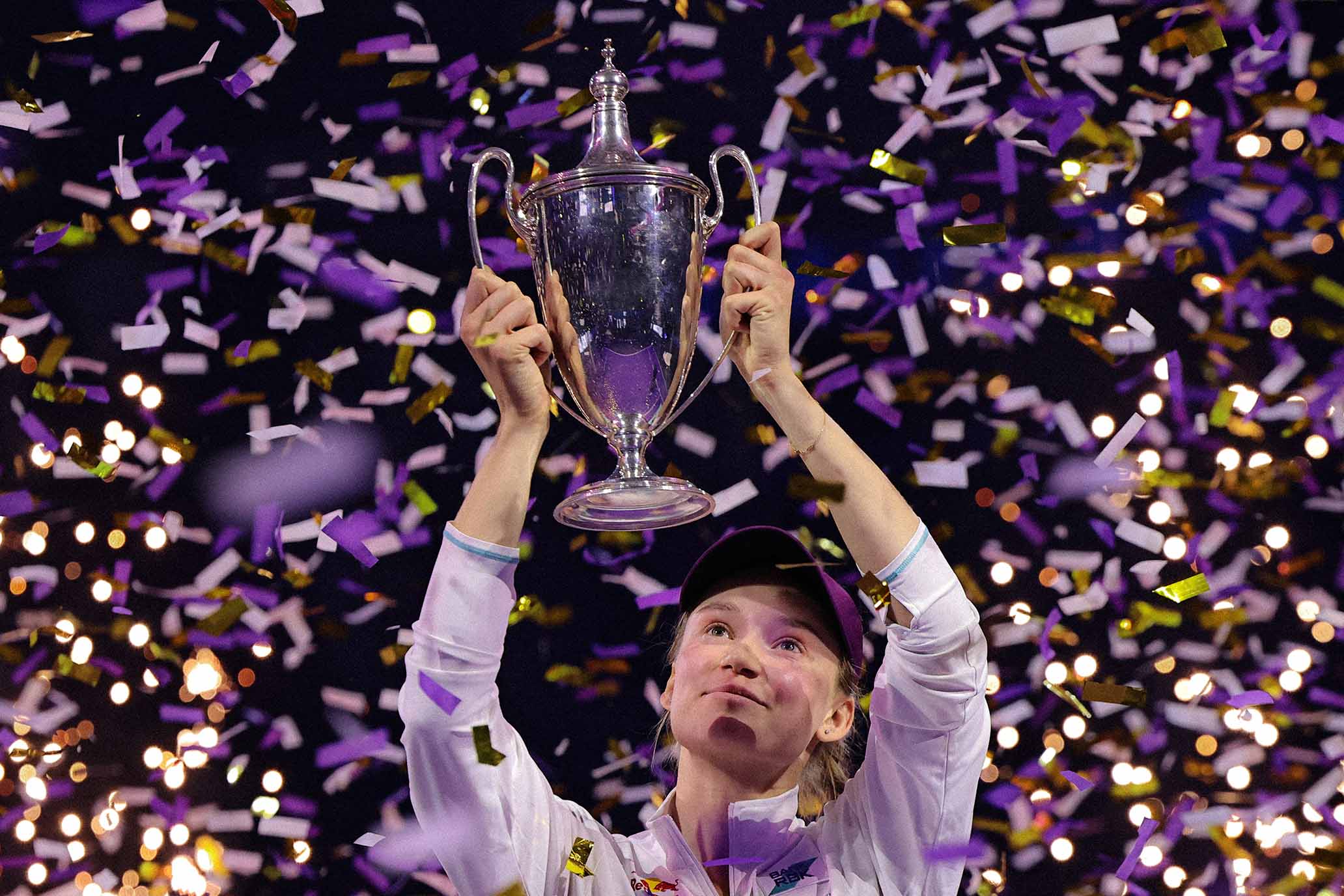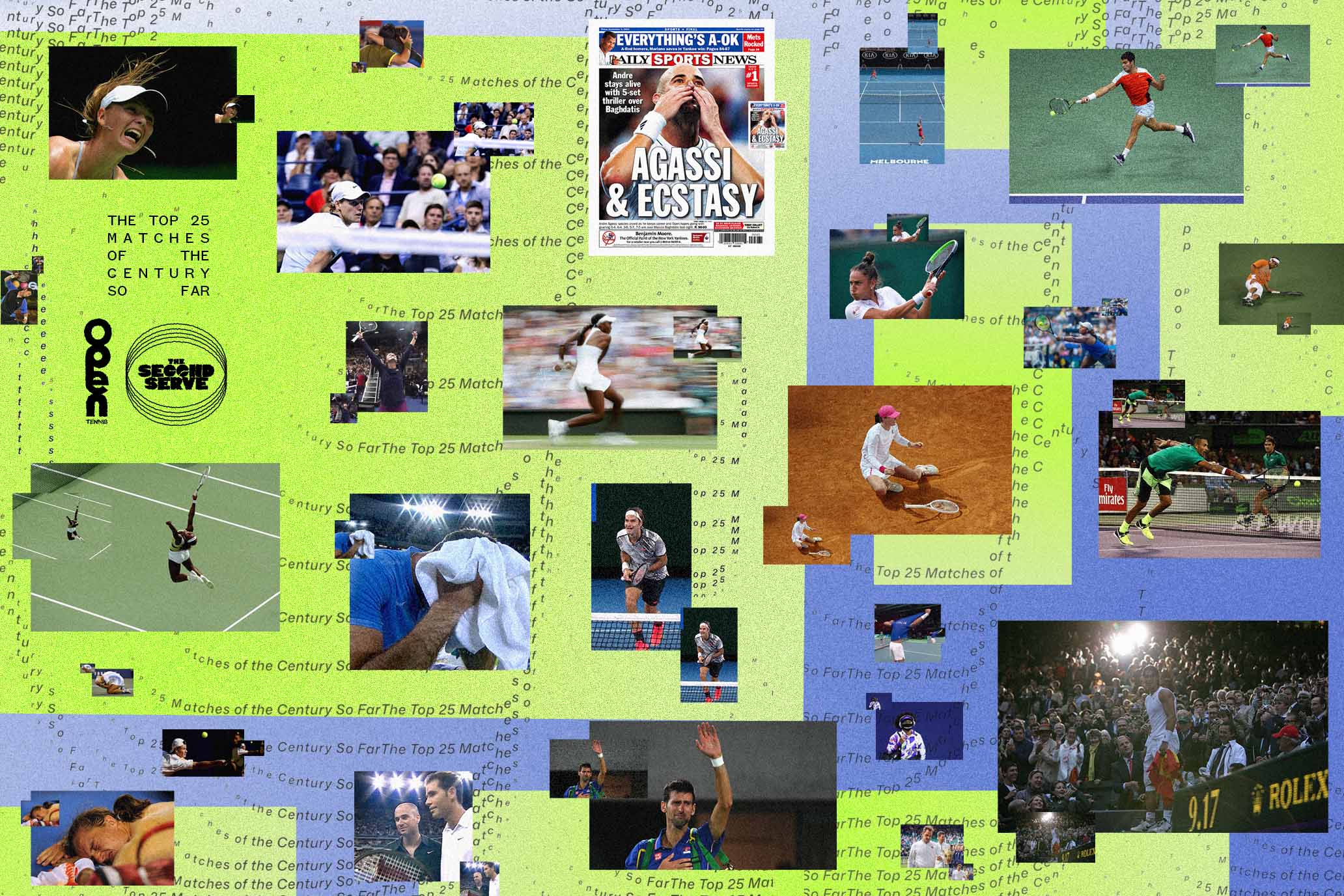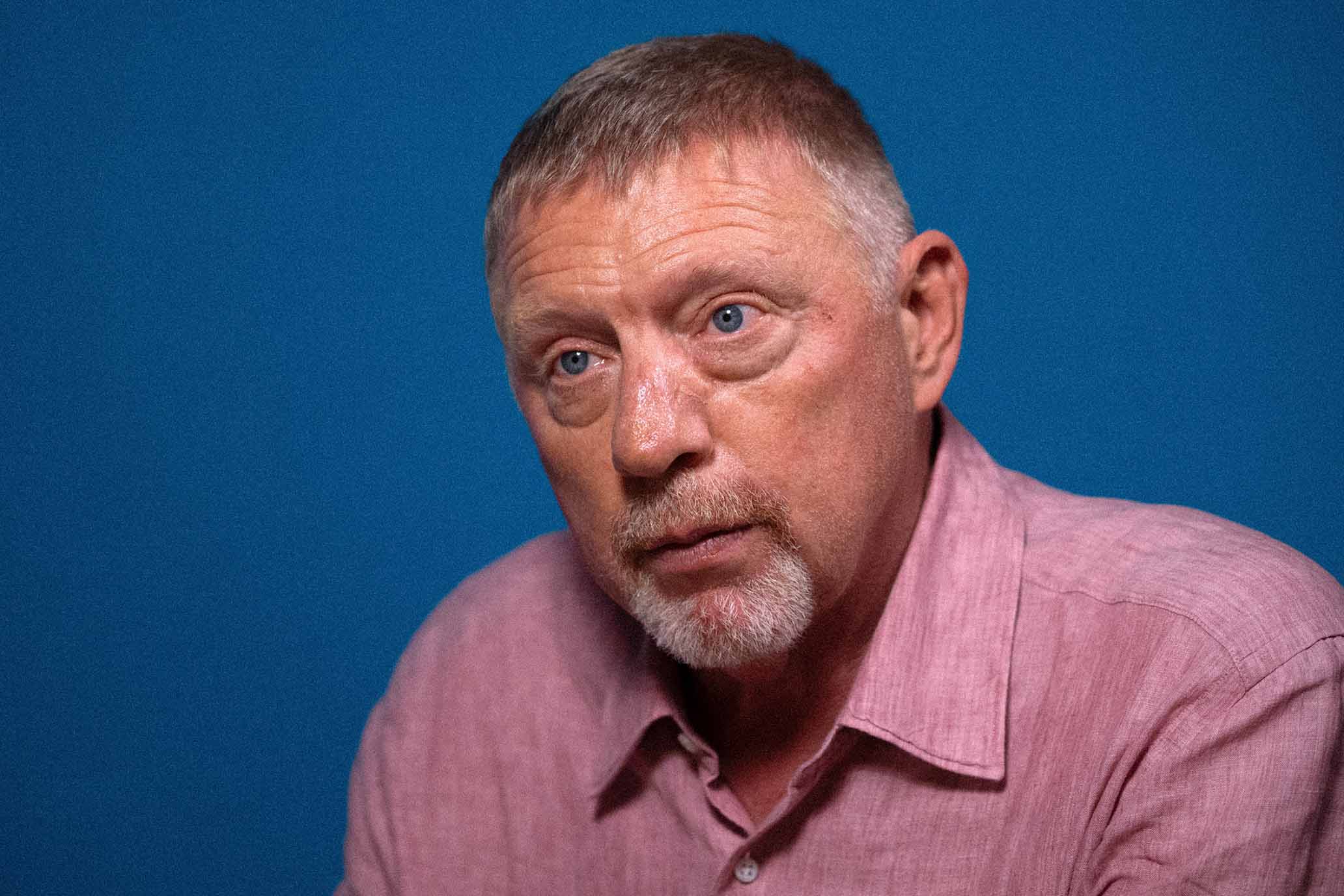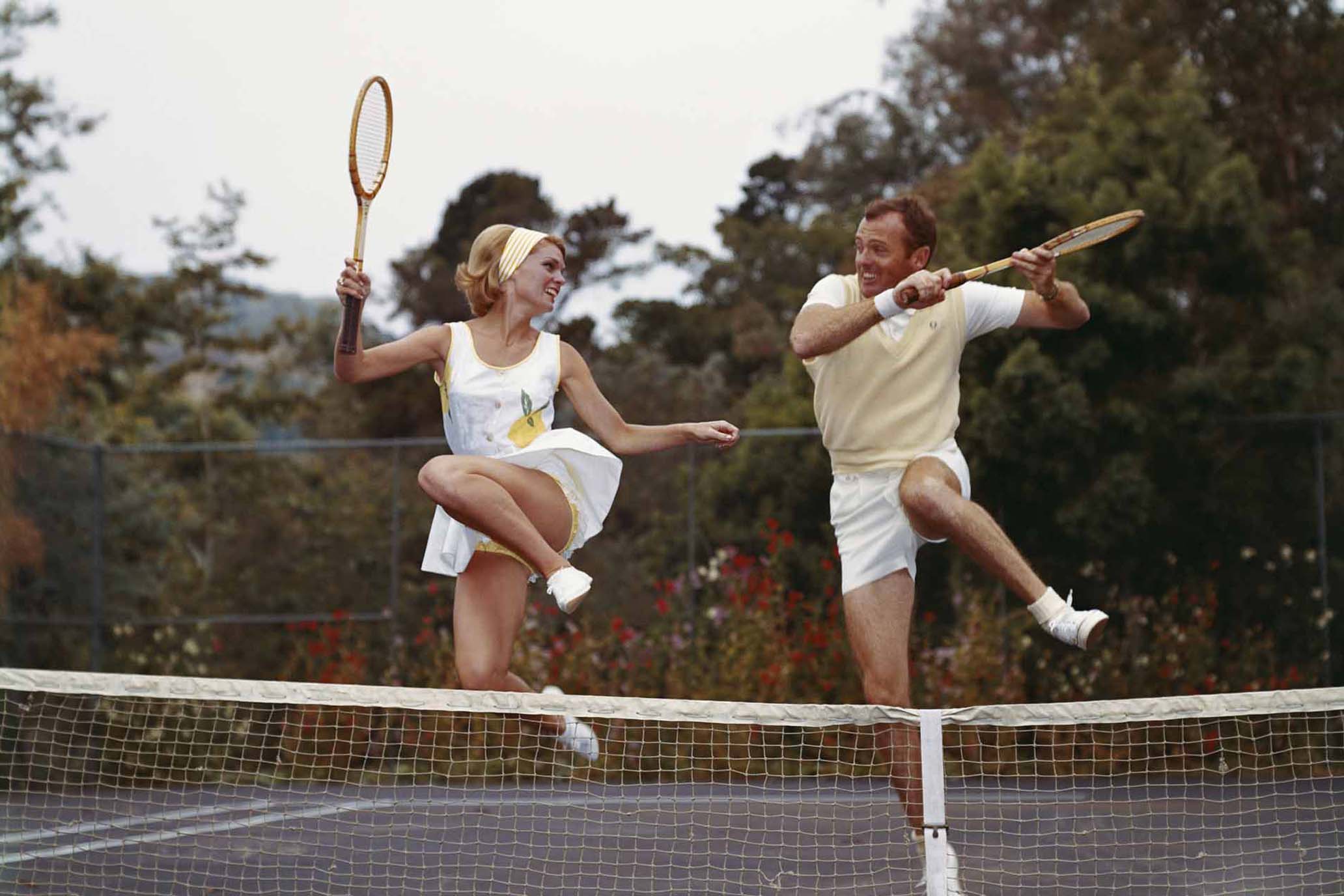Out Like a Lion
Out Like a Lion
After a chaotic start to the season, Elena Rybakina finishes strong.
After a chaotic start to the season, Elena Rybakina finishes strong.
By Giri NathanNovember 14, 2025

Elena Rybakina lifts the trophy after winning the WTA Finals in Riyadh last week. // Getty

Elena Rybakina lifts the trophy after winning the WTA Finals in Riyadh last week. // Getty
At her peak there’s no keeping up with Elena Rybakina. Sometimes I look at her play and think that a tennis player could not possibly be any better. She is also prone to drift from relevance for weeks on end. At the outset of the year I anticipated that we’d see her peak again in 2025. That’s because at the outset of the year, there was one tremendous reason for optimism—but it didn’t survive even a month.
In late 2024, Rybakina announced the most intriguing coaching hire I’d heard in years: Goran Ivanisevic. I like him because he’s a wild talker, and because his wild-card run to the Wimbledon title in 2001 is my first-ever tennis memory, but subjectivity aside, Ivanisevic was clearly one of the most accomplished active coaches. He’d helped Marin Cilic break through the era of Big Three hegemony and win the 2014 US Open. He’d shepherded Novak Djokovic through his late period, which saw him hone his serve into a career-elongating weapon and win nine Slams over six years. Rybakina would be Ivanisevic’s first-ever client on the WTA side. The 2022 Wimbledon champ had yet to collect another major, but she was arguably the greatest server of her generation, and there was still plenty of upside that a savvy coach might uncover.
And then, after a fourth-round Australian Open loss to eventual champ Madison Keys, Rybakina split with her new coach. Their partnership lasted just two tournaments. The reason for the split was never really in question. At the start of January, Rybakina announced that she had resumed working with her longtime coach Stefano Vukov, who was then the subject of an ongoing WTA investigation due to his behavior toward her. A few weeks after she rehired him, Vukov was sent a letter from WTA CEO Portia Archer. The letter and its contents, which were first reported by The Athletic, acknowledged evidence of a romantic relationship between Rybakina and Vukov. It also described it as a “toxic relationship,” accused him of “abuse of authority” as well as “verbal and physical abuse,” and suspended him from the tour for a year, starting at the end of January. (Vukov has repeatedly denied these allegations.)
The promising Ivanisevic era was over as soon as it had started. Rybakina had gone back to an old coach, newly barred from tournaments and practice courts. Ivanisevic, for his part, was “blindsided” by Vukov’s return to the team, according to The Athletic. He would later describe Rybakina’s situation as “sad” and “strange” in an interview with the former soccer player Slaven Bilic: “Unfortunately, some things happened off the court that I couldn’t control, and I didn’t want to be a part of that and part of that story.” For at least some of the tennis world, one undercurrent of the enthusiasm about Ivanisevic was relief that she’d moved on from Vukov. Apparently that was not the case after all.
She proceeded with her tour schedule while employing a coach who could not actually set foot in tournaments. What was happening on court during all this? One Dubai semifinal and one Strasbourg title notwithstanding, the first half of Rybakina’s 2025 season was unremarkable. For the first time in two years, she slipped out of the top 10. She lost winnable matches to her chief rivals, Iga Swiatek (7–5 in the third at Roland-Garros) and Aryna Sabalenka (squandered quadruple match point in Berlin). Not long ago those players appeared to be coalescing into a Big Three on the WTA. That future looked less secure, as Sabalenka pulled away from the pack.
Off the court, Vukov appealed his suspension in June and soon entered into private arbitration with the tour. In August, the suspension was lifted and he returned to his seat in the player’s box. Around that time, Rybakina’s results turned around. She made consecutive semifinals in Washington, Montreal, and Cincinnati; she beat a few top 10 opponents. And she managed to salvage her season just in time, racking up the wins in the Asian swing and lifting a 500 title in Ningbo that secured the last slot at the WTA Finals in Riyadh. Despite having languished for much of this season, she earned a chance to reassert herself among the best players on tour.
And in the Saudi capital, at the end of this murky year, she peaked, beating four of the top five players in the world, including Sabalenka in a blistering final. At its best Rybakina’s tennis is powerful, lucid, and economical, as I wrote a few days ago and still agree with. She controls points start to finish, doesn’t run more than she has to, and looks luxuriously unhurried.
Rybakina ended the season with 516 aces, the first woman to break the 500 mark since Karolina Pliskova in 2016. For going undefeated at the WTA Finals, Rybakina was awarded the largest prize in the history of the professional tennis tours, $5.2 million. After the match there was supposed to be a photo with the WTA CEO and the two finalists. Rybakina snubbed her and stood off to the side while it was taken. The implication was obvious: She was unhappy about how the tour had dealt with her coach, and had no interest in posing with its top executive. In the post-match press conference, after some prodding from reporters, she said there had been no reconciliation with the WTA after the investigation. Rybakina absolutely dominated the year-end event of a tour that just sanctioned and then unsanctioned the coach she continues to employ. It’s an uneasy situation, which raises questions about individual agency and institutional responsibility, and admits no satisfying answers. And the better she plays, the starker those questions will be.

PURE, ORIGINAL TENNIS — SIGN UP!
RECOMMENDED
Big House Boris
BOOK REVIEWS



